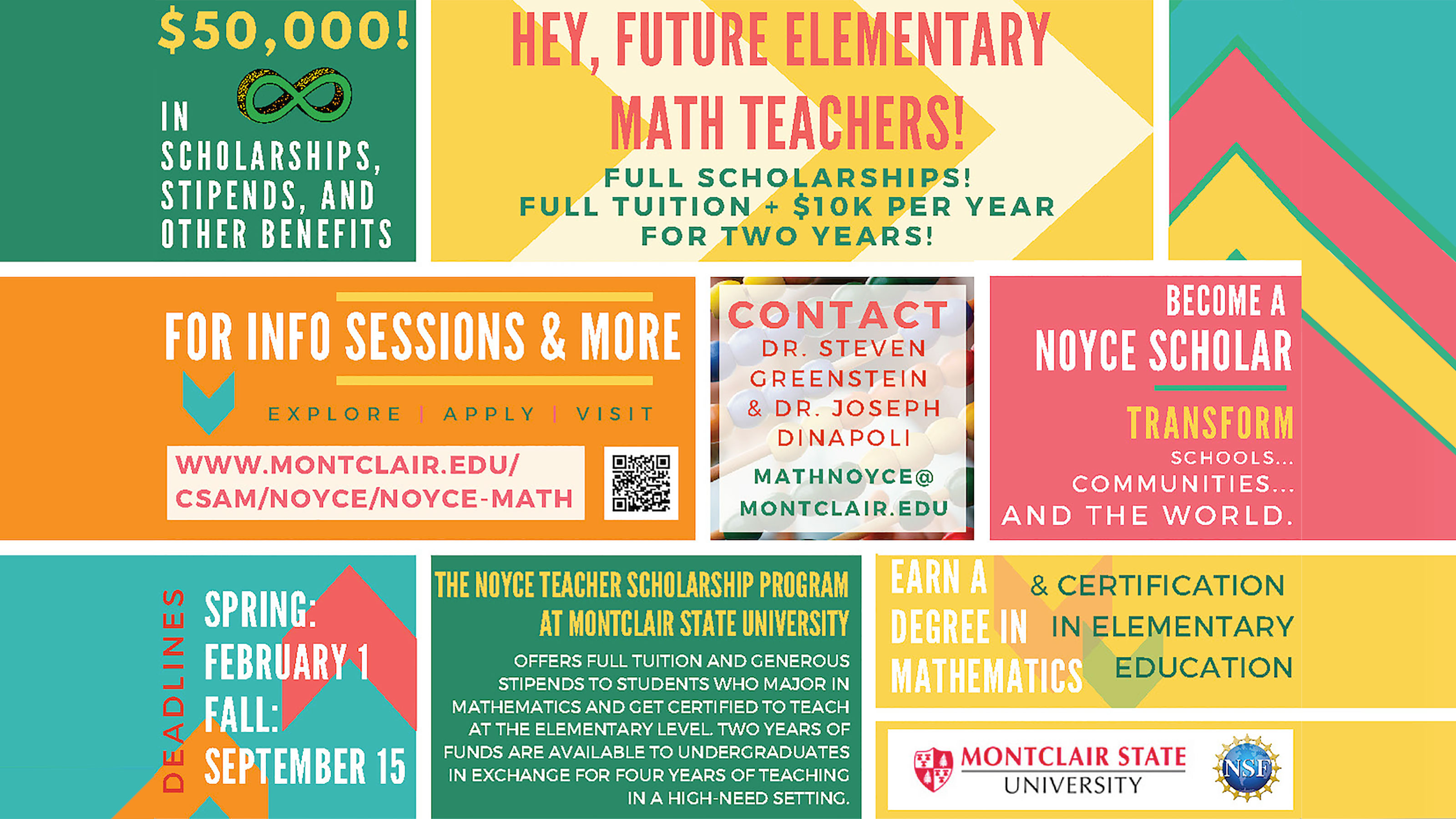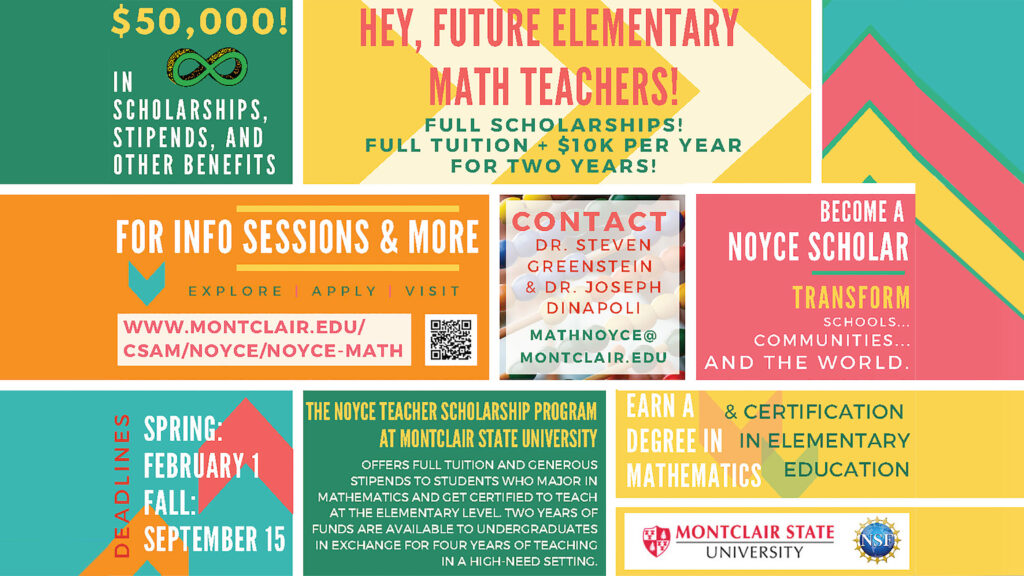My Secret Weapon for College: How I Found Amazing Math Scholarships (And How You Can Too!)
I remember it like yesterday. High school graduation was just around the corner, and the excitement of starting university was mixed with a very real, very heavy dread. My family wasn’t wealthy, and the thought of accumulating mountains of student loan debt before I even started my career was terrifying. I loved math – calculus, linear algebra, statistics – it all just clicked for me. But I kept thinking, "Who pays you to do math before you even have a job?"
That’s when a teacher, bless her heart, pulled me aside. "Have you looked into math scholarships?" she asked. I probably gave her a blank stare. Scholarships, sure, but math scholarships? It felt too specific, too niche. Boy, was I wrong. That conversation sparked a journey that completely changed my college experience, saving me tens of thousands of dollars and letting me focus on what I loved.
The "Aha!" Moment: Why Math is More Than Just Numbers
It turns out, the world needs math. Not just mathematicians (though they’re super important!), but engineers, scientists, data analysts, economists, software developers, and so many other professions that rely heavily on a strong quantitative background. Universities and organizations know this. They’re actively looking for bright minds who can solve complex problems, analyze data, and innovate. And they’re willing to invest in those minds.
That’s why math scholarships aren’t just a fantasy; they’re a strategic investment. They want to encourage more students to pursue STEM (Science, Technology, Engineering, and Mathematics) fields. So, if you’re a math enthusiast, you’re sitting on a goldmine of opportunity!
Diving In: What Kinds of Math Scholarships Are Out There?
When I started my search, I pictured one big "Math Scholarship Fund" somewhere. Nope! It’s much more diverse, which is actually a good thing because it means more chances for you. Here’s a breakdown of what I discovered:
-
Merit-Based Scholarships: These are often the biggest and most competitive. They look at your grades, your standardized test scores (if you’ve taken them), and your overall academic performance in math and other subjects. If you’ve aced your calculus classes and done well in physics, these are definitely worth pursuing.
-
Departmental Scholarships: This was a game-changer for me. Once I was accepted into my university’s math department, I found out they had their own scholarships! These are specifically for students majoring in mathematics or a closely related field. They want to support their own. Sometimes, these are less competitive than university-wide ones because fewer people know about them.
-
STEM Scholarships: Many scholarships are broader and cover all STEM fields. Since math is the backbone of STEM, you’re a strong candidate here. Look for scholarships from engineering societies, tech companies, and science foundations.
-
Specific Focus Scholarships:
- Women in STEM: Many organizations actively encourage women to pursue STEM careers and offer scholarships just for them.
- Minority Students in STEM: Similar to above, these aim to increase diversity in technical fields.
- Specific Math Areas: Some scholarships might be for students interested in statistics, actuarial science, cryptography, or even pure theoretical math.
- Research-Oriented: If you’ve done any math-related research or want to, there are awards for that.
-
Community & Local Scholarships: Don’t forget your roots! Local businesses, community foundations, and even alumni groups from your high school often offer scholarships. While not always math-specific, they might value your academic achievements in math.
-
Graduate Math Scholarships: This is for later, but it’s good to know. If you plan to go for a Master’s or Ph.D., there are even more specialized scholarships, fellowships, and grants available, often tied to research or teaching assistantships.
Where Do You Even Begin to Look? My Treasure Map for Scholarships
Okay, so you know they exist. Now, how do you find them? This part requires a bit of detective work, but it’s totally doable.
- Your University’s Financial Aid Office: This should be your first stop. They have a wealth of information about institutional scholarships, including those specific to the math department. Many universities have their own online portals where you can apply for multiple scholarships with one application.
- The Math Department Itself: Seriously, email or call them! Ask if they have scholarships for incoming or current students. They often do, and sometimes they’re not widely advertised.
- Online Scholarship Databases: Websites like Fastweb, Scholarships.com, College Board’s BigFuture, and Cappex are fantastic resources. You’ll create a profile, and they’ll match you with scholarships you might qualify for. Be prepared to sift through a lot, but it’s worth it.
- Professional Organizations: Many professional groups in math-related fields offer scholarships. Think the American Mathematical Society (AMS), the Mathematical Association of America (MAA), the Society for Industrial and Applied Mathematics (SIAM), or even actuarial science societies.
- Companies and Foundations: Big tech companies, financial institutions, and foundations often have their own scholarship programs to foster talent. A quick Google search for "math scholarships [company name]" or "STEM scholarships [foundation name]" can yield results.
- Your High School Counselor: Don’t underestimate them! They often have lists of local scholarships or know about opportunities that previous students have pursued.
Crafting a Winning Application: Beyond Just Good Grades
This is where the rubber meets the road. Getting good grades in math is important, but it’s rarely enough on its own. You need to show who you are and why you deserve this investment.
-
Grades and Test Scores: Yes, they matter. Do your best in your math classes. If your school offers AP Calculus, AP Statistics, or other advanced math courses, take them and aim high. This demonstrates your commitment and ability.
-
The Essay: Your Story, Not Just Your Scores: This is probably the most crucial part. Don’t just list your achievements. Tell a story.
- Why math? What sparked your interest? Was it a puzzle you solved, a concept that blew your mind, or a teacher who inspired you?
- How has math impacted you? How does it make you see the world differently?
- What are your goals? How will a math degree help you achieve them? How will their scholarship help you achieve them?
- Be authentic. Scholarship committees read hundreds of essays. They can spot generic answers a mile away. Let your passion shine through. I wrote about how math helped me understand the patterns in music, connecting two seemingly unrelated passions.
-
Letters of Recommendation: Choose wisely. Ask teachers who know you well and can speak to your math abilities, work ethic, and character. A letter that says, "This student is good at math" isn’t as powerful as one that says, "This student grappled with a complex proof for weeks, showing incredible perseverance and a deep intuitive understanding, and even helped peers grasp the concept."
-
Extracurricular Activities: What do you do outside of class that shows your interest in math?
- Math Club/Competitions: Participate in AMC, AIME, or other math competitions. Even if you don’t win, participation shows initiative.
- Tutoring: Helping others with math not only reinforces your own understanding but also demonstrates leadership and a willingness to share your knowledge.
- Coding/Programming: Many math fields involve coding.
- Robotics/Science Fairs: Projects with a strong quantitative component are excellent.
- Any activity where you use problem-solving or analytical skills: Chess club, debate team, even a leadership role in a sports team can show valuable skills.
-
Interviews: Some scholarships require an interview. Be prepared to talk about your love for math, your aspirations, and why you’re a good fit for their scholarship. Be enthusiastic, make eye contact, and be yourself.
My Top Tips & Tricks (Learned the Hard Way!)
- Start Early, Seriously: Scholarship deadlines often sneak up on you. Begin your search and application process months before you think you need to.
- Keep Everything Organized: I created a spreadsheet with scholarship names, deadlines, requirements, and application statuses. It saved my sanity.
- Tailor Each Application: Don’t just copy-paste. Read the scholarship’s mission and tailor your essay and answers to their specific criteria.
- Proofread, Proofread, Proofread: A sloppy application can send the wrong message. Ask a teacher, parent, or friend to read it over for errors.
- Apply for Many: It’s a numbers game (pun intended!). The more you apply for, the better your chances. Don’t get discouraged by rejections; see them as practice.
- Don’t Limit Yourself to "Pure Math": Remember that math is foundational to so many fields. If you’re going into engineering, computer science, economics, or even certain areas of biology or psychology, you still have a strong mathematical background that scholarship committees value.
- Network: Talk to professors, older students, and professionals in math-related fields. They might know about hidden opportunities.
The Payoff: More Than Just Money
Getting those acceptance letters, each accompanied by a scholarship offer, felt incredible. It wasn’t just about the money (though that was a huge relief!). It was validation. It showed me that my passion for math was not only personally rewarding but also valuable to the world. It empowered me to pursue my degree without the constant weight of financial worry, allowing me to fully immerse myself in my studies and extracurriculars.
Your passion for numbers is a powerful asset. Don’t let anyone tell you otherwise. There are people and organizations out there who believe in the power of mathematics and want to support students like you. So, take a deep breath, roll up your sleeves, and start your own scholarship journey. Believe me, it’s worth every minute of effort. Your future in math is waiting, and there’s funding available to help you get there. Go chase those numbers!


